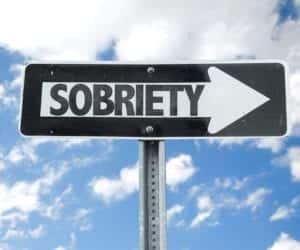Key Factors in Maintaining Your Sobriety After Treatment

Reaching Long-Term Abstinence is one Thing, but Maintaining it is Another
Obtaining sustained sobriety is a feeling of ultimate achievement as you have just overcome one of the biggest challenges you will ever face. The challenges that you faced while you were going through an active addiction, though, are the same ones that you will face post-treatment. This means that you will consistently have to work at maintaining your sobriety as it will not simply support itself. With the proper tools and strategies in place, refraining from using drugs or alcohol in the future becomes manageable.
By working on your thought patterns and cognitive behavioral choices after being discharged from treatment, you are taking the proper steps in ensuring that you stay sober.
Developing Coping Strategies
If you suffer from the disease of addiction, you will face temptation and cravings, that is the nature of the disease. By properly managing and working through these urges to use drugs or alcohol, you are taking the right measures in remaining sober.
It’s important that you have a support system at home and this can be developed through trusted loved ones who only want the best for you and who want to help you on this journey. A great coping strategy that addiction specialist recommend is attending 12-step meetings or AA/NA programs. These programs are the cornerstone of aftercare and relapse prevention as they help patients manage their addictions post-treatment.
Joining an Alumni group or support group will also give you the motivation and encouragement needed to remain in long-lasting sobriety. These support teams will also allow you to cultivate new meaningful relationships with individuals who are sober and want to lead a healthy and sober lifestyle. Switching up your social circle and saying goodbye to former toxic friendships and relationships are two of the most important initiatives you can take as a now-sober individual.
The Benefits of Staying Busy
A key factor in maintaining your abstinence from substance abuse and the pressure to use is staying busy and active. Engaging in sober activities will only positively affect your sobriety. Participating in recreational activities such as meditation, joining a sports team, yoga, going to the gym, or generally staying physically active through exercise will keep your mind and body active.
What to Expect Post-Treatment
When you first re-enter society as a sober individual, you may feel extremely overwhelmed and nervous. These are all normal feelings as you are now trying to navigate life without having drugs and alcohol taking control. The road to recovery is different for everyone and for most, staying abstinent from substances of abuse management is a lifelong process that needs continuous effort and improvement. What to expect post-treatment will vary depending on the degree of addiction that you are recovering from. In the early abstinence of recovery, you will learn how to detect and determine triggers and therefore learn how to develop coping mechanisms. This is something that may take time. Also, expect to learn how to handle cravings when they are strong; this is a key element of a successful recovery.
You will undoubtedly face certain recovery challenges as you are still in a vulnerable state of remission from substance abuse. It’s important that you refrain from partaking in any sort of activity that would jeopardize your progress. One small ‘slip up’ and you may find yourself facing addiction once again. Retraining your mind and body to be able to function normally without drugs or alcohol is not an easy task but it is not impossible either. There are tools and resources out there that are able to help you in your journey toward lifelong sobriety.
If you or a loved one needs help with abuse and/or treatment, please call the WhiteSands Treatment at (877) 855-3470. Our addiction specialists can assess your recovery needs and help you get the addiction treatment that provides the best chance for your long-term recovery.
